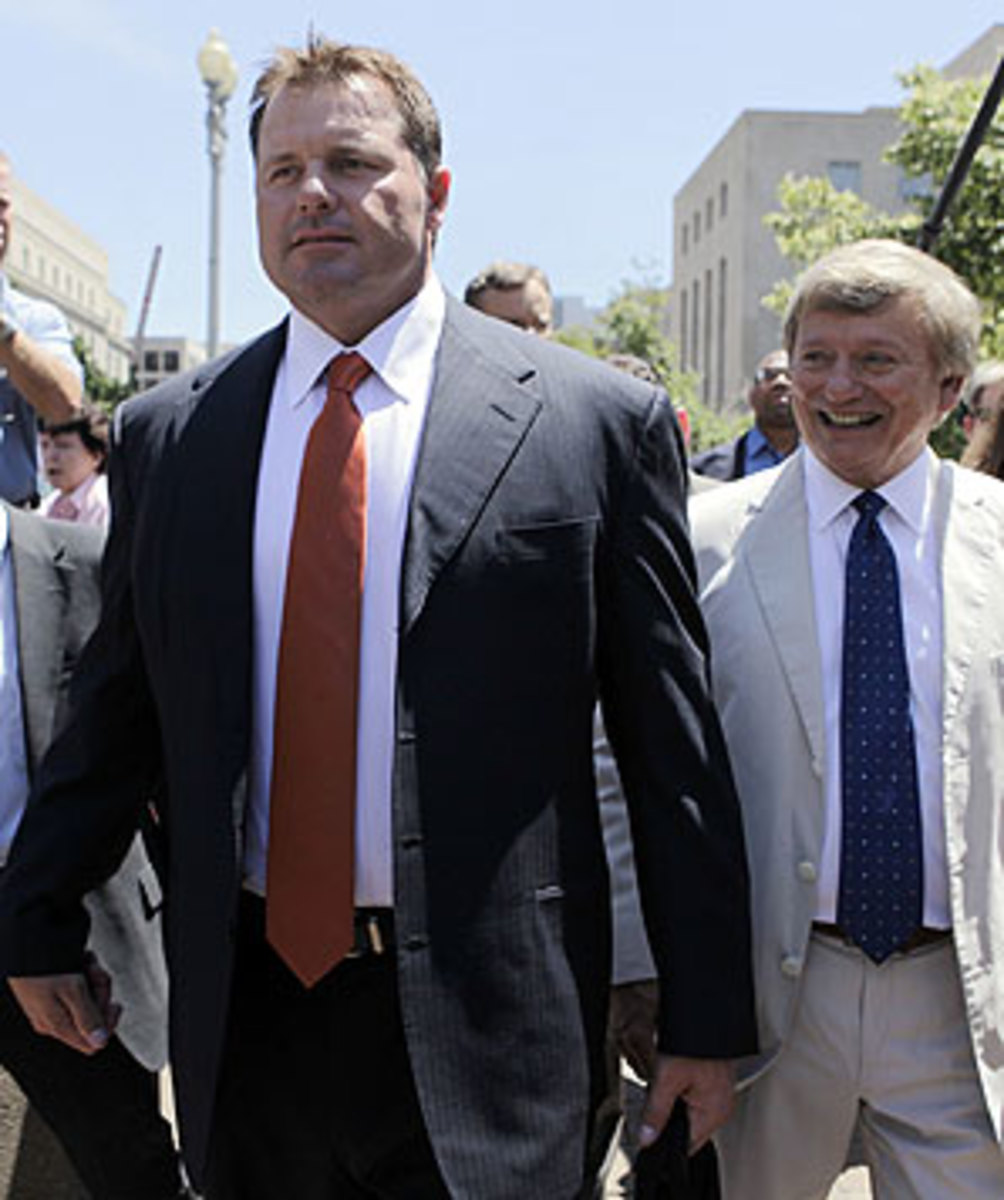
Prosecution's error likely to get Clemens off the hook
If you ever wanted to see the courtroom equivalent of the ball going under the legs of Bill Buckner in the 1986 World Series, you saw it today. U.S. District Judge Reggie Walton declared a mistrial in the government's expensive case against legendary pitcher Roger Clemens, who allegedly lied before Congress in February 2008 about using steroids and illegal performance enhancers. The mistrial does not preclude a retrial, but it sets the government's case back considerably, if not irretrievably.
Prosecutors erred badly by violating a ruling by Judge Walton which prohibited the admission of evidence that spoke to the credibility of certain witnesses. Those witnesses included ex-pitcher Andy Pettitte -- who was set to testify that Clemens admitted to using illegal performance enhancers -- and his wife, Laura. More specifically, prosecutors allowed jurors to see a screen which displayed comments by Congressman Elijah Cummings that spoke to the credibility of the Pettittes. It was a clear violation of Judge Walton's order. The comments were supposed to be redacted but someone in the U.S. Attorney's office either forgot to redact them or tried to sneak them in. Either way, it was a disastrous move.
Judge Walton ruled a mistrial because the prosecutors' error, in his view, prevents Clemens from receiving a fair trial. The Sixth Amendment to the U.S. Constitution guarantees criminal defendants a fair and speedy trial, with an impartial jury. Here, the jury may have lost its impartiality because it observed information that could have wrongly impacted their views of the Pettittes and, by implication, Clemens. A tainted jury is one presumed incapable of acting fairly.
Judge Walton indicated he would be willing to hear the government's request for a retrial on September 2, but seemed skeptical of allowing a retrial. He suggested that a retrial could constitute double jeopardy. Pursuant to the Fifth Amendment to the U.S. Constitution, double jeopardy bars repeated prosecutions for the same specific offense.
For Clemens, retrying him on the same perjury and false statement charges, especially since they would be based on the same underlying incriminating material from his Congressional testimony, would likely constitute double jeopardy. That said, case law suggests that if the prosecution's mistake which gave rise to the mistrial did not go to the heart of the case, double jeopardy may not bar a retrial, meaning prosecutors -- whose mistake was probably more glaring than it was profound -- still have hope for a retrial.
The government can appeal Judge Walton's decision to the U.S. Court of Appeals for the D.C. Circuit, but don't expect a reversal. Appellate courts are highly deferential towards how a trial judge manages the trial and how he or she makes decisions related to the fairness of the trial.
For the Justice Department, the Clemens mistrial, when coupled with Barry Bonds escaping conviction on all but an obstruction of justice charge, will lead to serious questions about the wisdom of prosecuting for perjury baseball players who are alleged to have used steroids. Millions of tax dollars and thousands of staff hours have been poured into these prosecutions. At a time when the federal government is asking its citizens to sacrifice, perhaps the government should think more critically about how it allocates its resources for trials.
For Clemens, the mistrial makes it highly unlikely that he will ever be convicted of the charges against him. It does not, however, provide him the vindication of a "not guilty" verdict; a mistrial merely indicates that the government fumbled the case in a way that prevents a fair trial. For a pitcher so deeply interested in his baseball legacy that he wanted to testify before Congress, a mistrial may not greatly help his chances of reaching the Hall of Fame.
Perhaps the biggest winner today is the much-maligned Rusty Hardin, who led Clemens' legal team, which deserves credit for detecting the prosecution's error.





